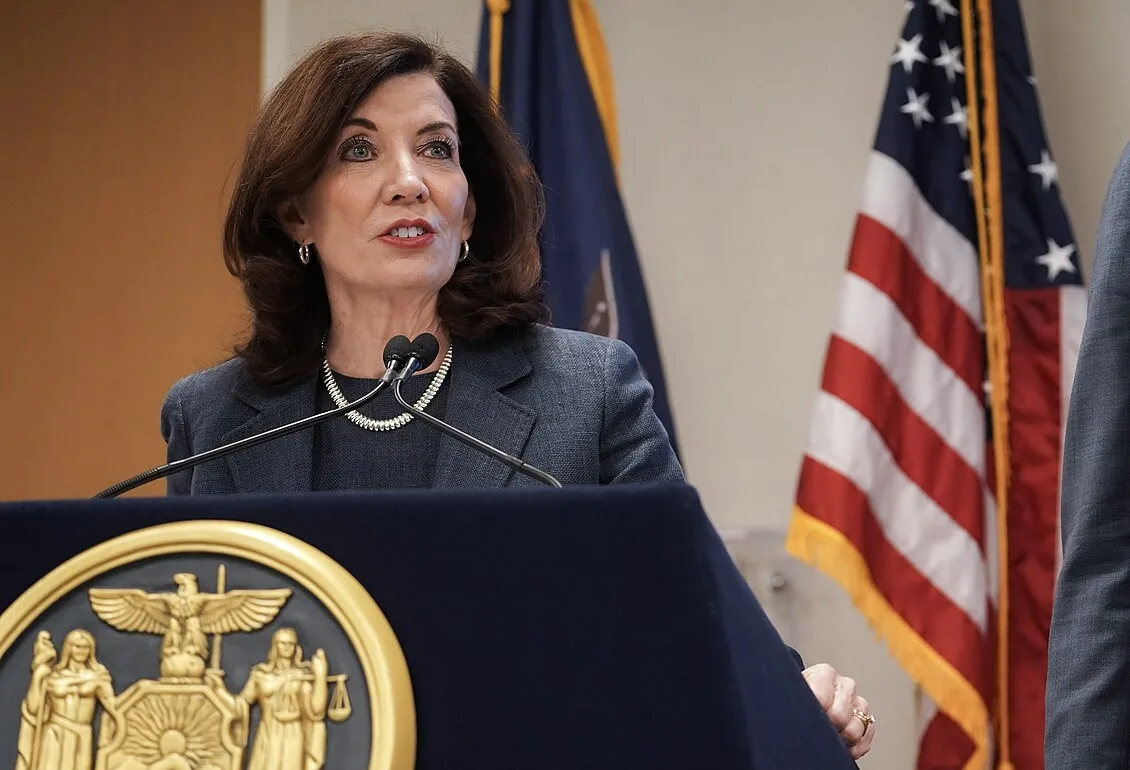
New York Governor Kathy Hochul signed a bill Tuesday that will set up a commission to explore providing reparations for slavery.
The newly-formed New York State Community Commission on Reparations Remedies aims to acknowledge the injustice, cruelty, brutality, and inhumanity of slavery within the state. The commission will include individuals from various professional and personal backgrounds who will examine historical injustices and maltreatment of enslaved people. Although New York officially ended slavery by 1827, the state’s economy had already reaped substantial benefits from the practice.
Governor Hochul emphasized the state’s responsibility in facing its entire history, including the painful chapter of slavery:
[I]n New York, we like to think we’re on the right side of this. You know, slavery was a product of the South. It’s a confederacy… What is hard to embrace is the fact that our state also flourished from that slavery. It’s not a beautiful story, but indeed it is the truth.
New York’s initiative follows in the footsteps of other US reparations efforts. In California, a reparations task force has already presented an extensive report with over 100 suggestions after two years of intensive study. These suggestions, now before state lawmakers, aim to support Black families in various ways, including assistance with genealogical research to trace ancestry. However, potential policy changes face hurdles due to the state’s budgetary challenges.
Similarly, in 2021, the Chicago suburb Evanston established itself as the first US city to offer reparations, committing $10 million over a decade. The program‘s initial phase involves allocating $400,000 to eligible Black households, with each qualifying family receiving $25,000 for housing-related expenses.
In September, the UN Human Rights Office released a report calling for reparations to people of African descent in response to the enduring impacts of slavery and colonialism. The report proposed a multipronged approach, including potential monetary reparations, and emphasized the involvement of affected communities in the design and implementation of reparatory justice measures.
However, there are concerns about the feasibility and the scope of reparations for slavery, especially given the financial implications. For instance, Alderman Cicely Fleming, the sole opposing vote in Evanston’s reparations program in 2021, voiced significant concerns over the initiative’s approach. She supported the concept of reparations wholeheartedly but critiqued the program as a housing policy masquerading as reparations. Fleming criticized the resolution for prescribing to Black residents what they need and the means of receiving it, rather than providing the autonomy to decide for themselves.


